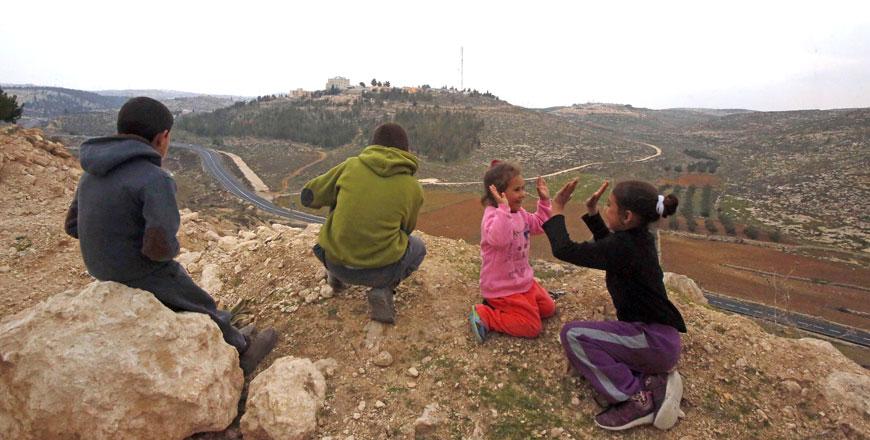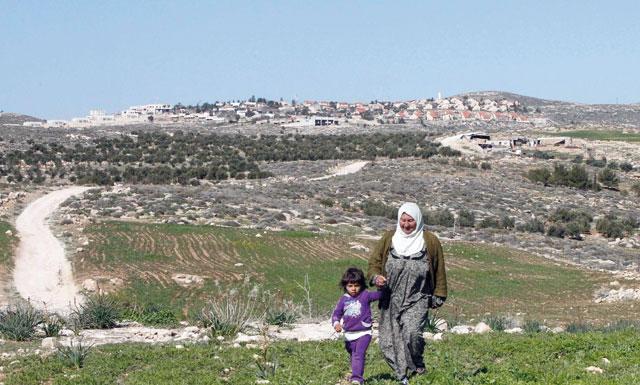You are here
Shift in US policy on Israeli settlement highlights Jordan’s influence
By Dana Al Emam - Feb 04,2017 - Last updated at Feb 04,2017
AMMAN — His Majesty King Abdullah's recent meeting with US President Donald Trump and encounters with top lawmakers has made a tangible impact on US policies and succeeded in communicating Jordan's stand on Middle East issues, analysts, reports and a leading politician said on Saturday.
The King met Trump briefly on Thursday, but had an immediate influence on the president’s rhetoric, the New York Times reported.
In an article titled "Trump Embraces Pillars of Obama’s Foreign Policy", the paper said Trump “shifted his policy” after meeting with King Abdullah into one that embraces "key pillars" of the foreign policy of his predecessor, Barack Obama.
This change in policy was evident in the White House’s recent statement that urged Israel to curb construction of settlements beyond their current borders in East Jerusalem and the West Bank, according to the article, published on Friday.
Senate President Faisal Al Fayez, who is also a former premier, House speaker and and Royal Court chief, was quoted in a statement as saying that His Majesty managed to extract a “positive reaction by the new US administration, which has asserted that an increase in Israel’s settlement activity would impede the peace process in the region and efforts under way to resume the Palestinian-Israeli negotiations”.
The New York Times reported last month that Israel, emboldened by Trump’s rise to power in the US, acted in defiance of international pressure, approving a huge new wave of settlement construction in the occupied West Bank.
“The announcement made clear that just a few days into the Trump presidency, the Israeli government feels emboldened to shake off the constraints imposed by the Obama administration and more willing to disregard international condemnation,” the report said. However, Washington’s comments after the King-Trump meeting changed the way things were heading, according to Fayez, as cited by the Jordan News Agency, Petra.
Commenting on the outcome of the King’s US visit, Al Ghad columnist Fahed Khitan said the meeting with Trump was very significant and “can be built upon for further dialogue on key issues in the Middle East”.
As Trump is scheduled to meet with Israeli Prime Minister Benjamin Netanyahu later this month, King Abdullah sought in Washington to influence the US administration’s stance towards Israeli settlement policy and a looming decision to relocate the US embassy to Jerusalem, Khitan said.
Written by Mark Landler, Peter Baker and David E. Sanger, the New York Times’ Friday story described the King as “one of the most respected leaders of the Arab world”.
However, Musa Shteiwi, director of the University of Jordan’s Centre of Strategic Studies, said the Trump administration would not drastically change the course of its entire foreign policy in favour of Arabs, but when it comes to the Israeli settlements, the Monarch’s mission was a success.
He highlighted that the meetings with Trump and several senior officials and lawmakers were aimed at “clearly” presenting Jordan’s stand, as well as that of Arabs, regarding key regional issues the president tackled during his election campaign, “without being well-aware of”.
Khitan said the mission was to “contain” any US pro-Israel policy, and to agree upon a unified strategy in the war against terror in the region, especially with Trump’s declared intentions to eradicate the Daesh terror group with the help of local allies.
“Despite Trump’s controversial policies, his meeting with King Abdullah was the first with a [Middle East] leader, which indicates Jordan’s importance in the eyes of US policy in the Middle East and the American institution’s, whether Democratic or Republican, respect for the King’s views” he said.
A White House statement issued on Thursday said Trump reiterated his country’s commitment to Jordan’s stability, security and prosperity and thanked His Majesty King Abdullah for his leadership in promoting peace and stability in the region.
“President Trump underscored that the United States is committed to strengthening the security and economic partnership with Jordan. The President also emphasised Jordan’s essential role in serving as a model of tolerance and moderation in the region,” the statement said.
Trump highlighted the Kingdom’s “critical” contributions to defeating the Daesh terror group and discussed the possibility of establishing safe zones in Syria.
Shteiwi said Jordan’s pragmatic, realistic and moderate policy that does not involve hostility towards or interfere in the affairs of other nations have entitled it to gain international recognition and respect.
He added that Jordan has been a key contributor in addressing international challenges, including the war against terrorism, the two-state solution to the Mideast conflict and the issue of refugees. In addition, the Kingdom has maintained open communication channels with countries around the world to reach mutual understanding over several challenges.
Related Articles
AMMAN – Although the UN Security Council (UNSC) Resolution 2334 is marked as a "milestone" decision, it is most likely to remain "ink on pap
WASHINGTON/OCCUPIED JERUSALEM — During his election campaign, Donald Trump signalled his presidency would be a boon for Israel and tou
AMMAN — US President Donald Trump’s recent statements about the one-state solution to the Palestinian-Israeli conflict have unleashed a stre


















